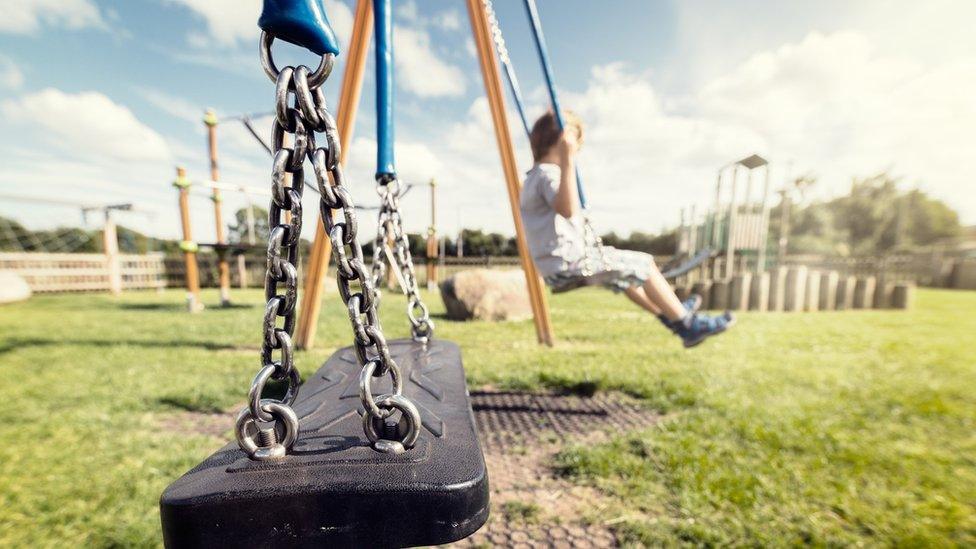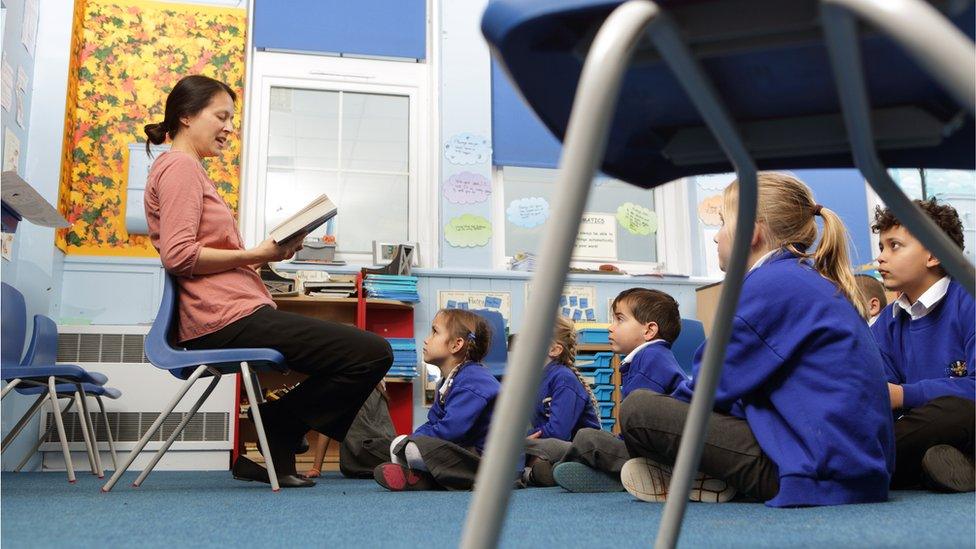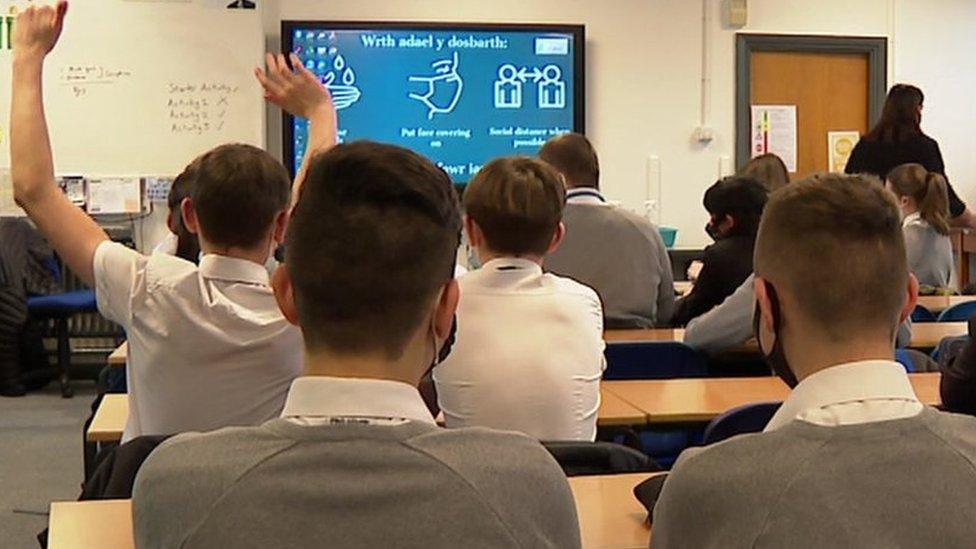Covid: Wales' school absences double since pandemic
- Published

One union says some pupils have got out of the habit of going to school
The number of children off school has more than doubled in the past academic year, compared to pre-pandemic levels.
On average, 16.3% of secondary school pupils were absent during 2021-22, up from 6.2% in 2018-19, Welsh government figures show. Absences of pupils from poorer backgrounds was higher.
School leaders said some pupils have "simply got out of the habit of regular attendance and never fully re-engaged".
The Welsh government said it spent £4m on its family engagement officer roles.
In primary schools, 11% of pupils were absent, compared to 5.4% pre-Covid.
The absence rate averaged nearly 18% for children entitled to free school meals, compared to 11.8% of pupils not entitled.
Rates were broadly similar for eight years before the Covid pandemic brought huge disruption to the way schools operated.
In the first set of figures since teaching returned fully to the classrooms, rates have spiked to 13.2% across all schools.

End of school year figures showed 426,783 pupils (88.5%) missed more than a week for any reason between September 2021 and July 2022.
More than 68,000 pupils were absent for more than 40 days.
About 30% of all absences were unauthorised - which includes missing without a reason or being taken on holiday without agreement.
There is a slight difference between the 2018-19 data - which records statutory school age pupils - and the last year's data, which covers pupils of any age, but it does not explain the big difference.
In 2019, overall attendance was about 94%.
Fining parents if their children miss school was suspended during the pandemic but, amid concern about attendance levels, Education Minister Jeremy Miles said earlier this year that councils and schools could re-introduce them.
Fixed penalties were to be use only "in the most extreme of cases", as part of a range of options and where all efforts to engage with the family had tried and failed.
School leaders said the pandemic had a "devastating" impact on attendance.
"It seems very likely that some students simply got out of the habit of regular attendance and never fully re-engaged, while others have suffered from stress and anxiety as a result of the pandemic and their attendance has suffered as a result", Eithne Hughes, director of the Association of School and College Leaders (ASCL) Cymru said.
"In both of these scenarios, many of the students affected will be vulnerable and disadvantaged young people and this is a huge cause for concern".
She called on the Welsh government and councils to ensure there was Covid testing, good ventilation in schools and funding for supply teachers in the autumn to ensure that disruption is kept to a minimum if Covid cases increase.

Covid itself had a direct impact on absences this year, with 69.1% of pupils missing at least half a day's schooling because of it.
The figures also showed about one in five pupils missed between five and 10 days.
Covid-related absences peaked in January, when infections were highest among school-age children.
They rose again in April but had fallen back to 1.7% of pupils by July.
Welsh Conservative leader Andrew RT Davies said: "It is essential that children are in the classroom, learning from their teachers in a face-to-face environment.
"Labour ministers need to get a serious grip on attendance problems before we have a lost generation on our hands."
The Welsh government said: "We have recently provided almost £4m for family engagement officers, to establish positive relationships with parents and provide bespoke support and information on good attendance.
"Schools that know their families well can ensure that measures are put in place to help children maintain good engagement and attendance, which is why our emphasis on community-focused schools is key to responding to this challenge.
"This year we also provided £24m which was focused on learners in exam years, including dedicated funding for an attendance officer in each local authority to support learners in year 11 to try to ensure they progress through their GCSEs."
- Published3 May 2022

- Published10 January 2022

- Published9 March 2022
